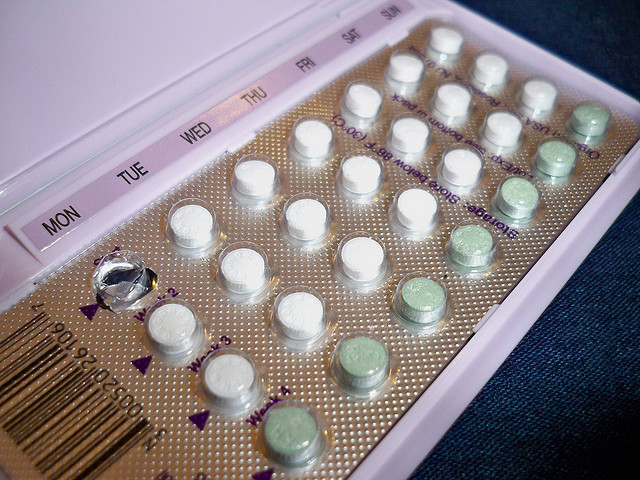Last week in Washington state, another special religious privilege bit the dust. The Ninth Circuit appeals court ruled unanimously that a pharmacist doesn’t have the right to refuse to fill a prescription for emergency contraception:
A unanimous three-judge 9th Circuit panel on Thursday decided that the rules are constitutional because they rationally further the state’s interest in patient safety. Speed is particularly important considering the time-sensitive nature of emergency contraception, the court said.
“The time taken to travel to another pharmacy, especially in rural areas where pharmacies are sparse, may reduce the efficacy of those drugs,” wrote Judge Susan Graber.
This has been a perennial demand of the religious right, going back to when I wrote “Unapologetic“, one of my earliest essays, in 2005. And while most of these religious supremacists are upset about birth control, it’s hard to see why it would stop there. If you’re a pharmacist who believes that AIDS is God’s punishment for sinners, could you refuse to fill a prescription for antivirals? The court rightly held that the state’s interest in public health and safety trumps these petulant demands.
The religious right legal group that represented the pharmacists was irate:
“No one should be forced to choose between their religious convictions and their family businesses and livelihoods, particularly when the state allows referrals for just about any other reason,” Waggoner said in a statement.
They assert that no one should have to choose between their personal beliefs and their livelihood, to which I answer that yes, you do! If you have convictions, sometimes it costs you something to stick by them. What they really want is costless conviction – they want to live by their own rules, but they want a world that obligingly bends around them so they never have to suffer any loss or inconvenience for it. This is the Manhattan Option in practice: the idea that a person’s religious beliefs should permit them to become a law unto themselves and impose their own convictions on anyone they come into contact with.
The whole point of religious freedom is that, if you can’t perform the duties of a job, you’re free not to take that job. You’re not free to take the job and then refuse to do it. I wouldn’t force an Orthodox Jew or a Muslim to work at a non-kosher, non-halal butcher, but if they did choose to take that job, they couldn’t claim a special religious right to not have to handle or ring up pork products. Nor would I say a Jehovah’s Witness has the right to become a paramedic and refuse to administer blood transfusions to trauma sufferers. Nor would I say a Mormon has a religious right to work at Starbucks but only have to sell decaf.
This is yet another backdoor attempt to choke off access to legal services. After all, if the religious right can flood the zone with refusenik pharmacists, then birth control and other medicines they disapprove of might be legal in theory but impossible to get in practice. It’s not hard to guess that this is their real goal.
And they’re attacking that right on all fronts, as in the ongoing case over the Little Sisters of the Poor and contraception. The name of this Catholic non-profit was well-chosen to convey the image of a cottage of tiny, frail nuns; but the LSOP has grown well beyond its origins as a religious order to run nursing homes and assisted living centers all around the country. Like any religious group that enters the public sphere to run businesses, they’re required to comply with generally applicable employment regulations, including the insurance mandates of Obamacare. And, like other would-be theocrats, they want to prevent their female employees from being able to obtain birth control with the health insurance they earn as part of their work. It’s feudal ideology in the modern era.
What makes their demand even more outrageous is that, under the compromise offered by the Obama administration, the LSOP didn’t have to pay for birth control or be involved in dispensing it. They just had to state their objection to it, and then the insurance company would offer it without involving them. But that wasn’t enough for these theocrats, who went to court complaining that even having to state the beliefs under which they claim a right to opt out of a law is an unbearable infringement on their religious freedom. The LSOP’s argument is that, when they state their objection to birth control, that “triggers” someone else to provide it, and therefore they’re still implicated.
As commentators across the political spectrum have pointed out, enshrining this principle in law would lead to chaos. For example, under their interpretation, if there was a war and you’re a conscientious objector, you wouldn’t even have to notify the draft board of that; you could just throw the letter away without responding. If you have a religious objection to working on the Sabbath, you could just not show up. It’s not hard to imagine other scenarios in which this kind of privilege would twist the law into knots. This is the broadest assertion of the Manhattan option yet: that not only should you be able to exempt yourself from generally applicable law, you shouldn’t even have to say that that’s what you’re doing or give anyone else any opportunity to act in your stead.
The one thing we can hope (as suggested in Linda Greenhouse’s column) is that this demand may be too much to swallow even for a conservative-leaning, religion-friendly Supreme Court, given that even conservative appeals courts have rejected it. It’s not exactly an encouraging thought that secularists might prevail in the courts only because of the hubris and overreach of our adversaries, but given the alternative, I’ll take it.
Image credit: starbooze, released under CC BY-ND 2.0 license
